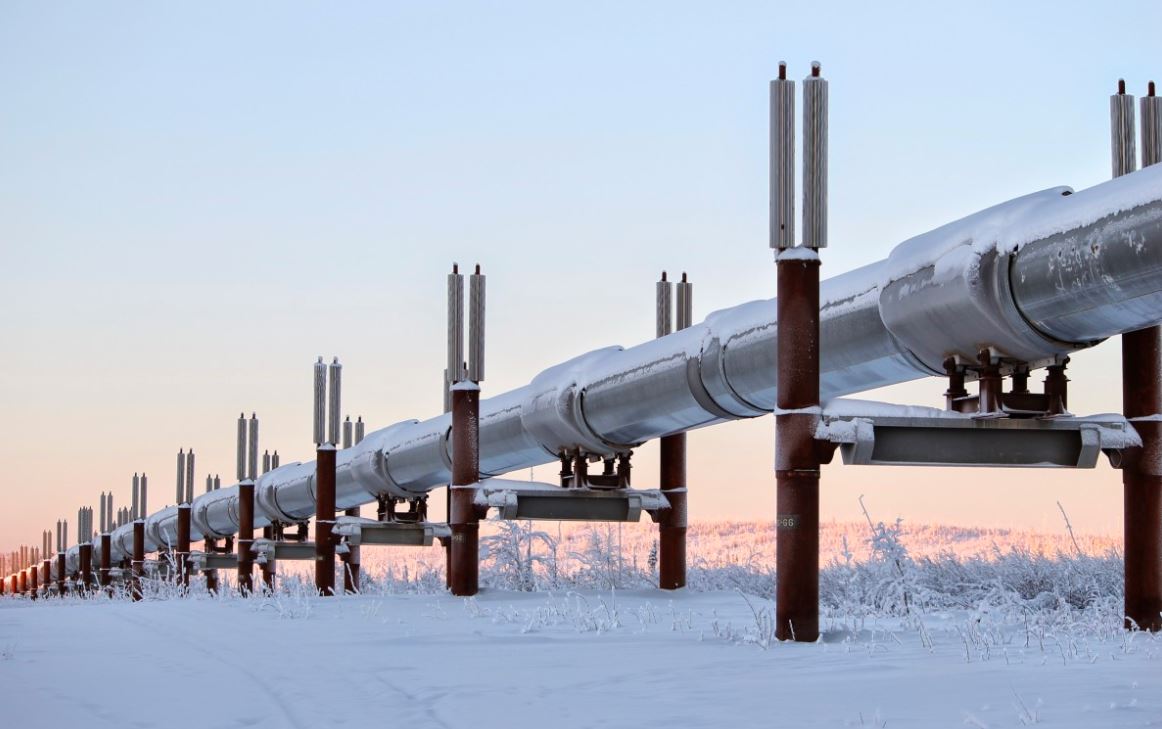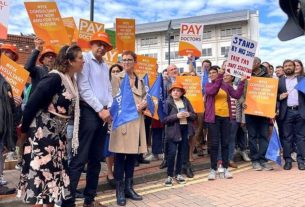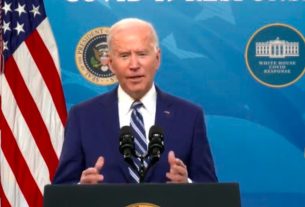London’s FTSE 100 fell 4% while the price of gas, oil and other commodities soared as spooked financial markets reacted to Russia’s invasion of Ukraine.
UK households will be facing even higher costs for energy, food and fuel as a direct result of the conflict. The energy price cap will rise even higher in the winter, pushing more families into fuel poverty and businesses to breaking point, reports the Telegraph, as average household energy bills pass the £3,000 mark.
The immediate fallout from Russia’s invasion saw gas prices surge by almost 70% on financial markets while oil prices passed the $100 per barrel mark for the first time since 2014 – an 8% spike taking a barrel of Brent crude benchmark oil to over $105 (£79).
The Guardian states “Russia is the world’s second-largest oil producer” with European refineries its biggest customer and UK motorists are already seeing the impact on petrol station forecourts. Prices are set to climb even higher than Wednesday’s (February 23) record 149.5p per litre, when diesel hit 153p. The RAC is warning an average £1.60 per litre of petrol could be on the near horizon.
“The question then becomes, where will this stop and how much can drivers take? just as many are using their cars more and returning to workplaces.” said the RAC’s Simon Williams.
If oil increases to $110 per barrel, “the average price of petrol would hit £1.55 a litre,” said Williams, adding: “This would cause untold financial difficulties for many people who depend on their cars for getting to work and running their lives as it would skyrocket the cost of a full tank to £85.”
This will rise to £88 for a full tank if a barrel hits costs $120 (£90), equating to £1.60 per litre – “without any change to the exchange rate which is currently at $1.35,” said Williams earlier today. However, by 7.30pm, the British pound had slipped to $1.3384, making oil (traded in dollars) even more expensive.
Price of gas surged 69%
While Russia supplies less than 5% of the UK’s gas, it provides Europe with around 40% of its supply. The Financial Times reports: “Futures linked to TFF (Europe’s wholesale gas price), surged as much as 69% to €142 per megawatt hour before trimming their gains to 40%” during today’s trading.
For comparison, last year it was just €16.
British Gas has guaranteed energy supplies to its 8 million domestic customers. “We can deliver everything to customers that we said we would,” commented Chris O’Shea, CEO of Centrica – the parent company of Britain’s biggest energy supplier.
Centrica have just reported pre-tax profits of £767 million for last year. In 2020 the company registered a £577 million loss.
O’Shea called the situation with Russia “unprecedented” and regarding its impact on prices, said: “I don’t think it will help anyone to speculate what this might mean. We have to wait and see how this might unfold, it is absolutely unprecedented, we will have to wait and see.”
Breadbasket of Europe
UK households are facing sharp price increases across the board with a range of other commodities affected by the Russia-Ukraine war.
The region “boasts some of the most fertile land on earth,” states Farming Life, “supplying a quarter of the world’s wheat and half of its sunflower products.”
Ukraine, known as the “breadbasket of Europe”, is among the top three exporters of grain (wheat, corn and barley) in the world and is a major producer of soybeans, potatoes and cooking oils for global markets
The price of wheat reached near record highs on financial markets with concerns about a supply shock leading to a global food price crisis.
Gold also is approaching its record high of $2,607 set in 2020 with an ounce peaking at $1,950 (£1,460) in Thursday’s (February 24) trading. Aluminium shot up 5% to record its highest ever London price of $3,466 while nickel and palladium also surged.
PM announces new sanctions
As the FTSE fell and commodity prices soared, Boris Johnson announced further sanctions on Russian and pledged the UK will support Ukraine “militarily”.
More than 100 Russian individuals, entities and subsidiaries will be hit with UK sanctions. All major Russian banks, including VTB, will have their UK assets frozen. Aeroflot will be banned from landing in the UK and oligarchs will be subject to travel bans as part of the wider ranging sanctions. Johnson said “new trade restrictions and stringent import controls” will also be imposed “in full concert with the United States and the EU.”
The PM came under attack earlier this week when he announced the “first barrage” of UK sanctions on Russia that critics said did not go far enough.
Commenting on the new measures announced on Thursday, Johnson said: “These trade sanctions will constrain Russia’s military, industrial and technological capabilities for years to come.”




